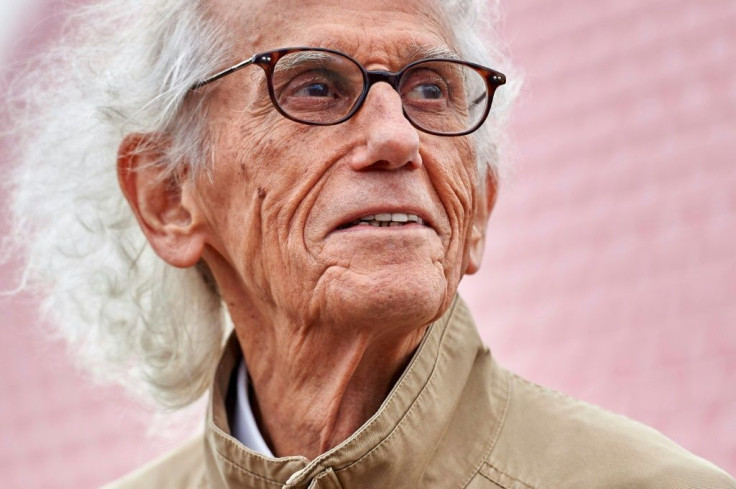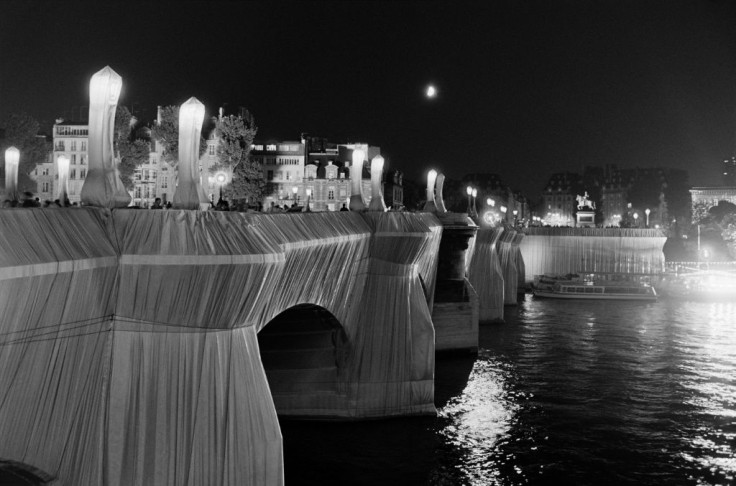Artist Christo Who Wrapped Reichstag In Fabric Dies Aged 84
The artist known as Christo, who made his name transforming landmarks such as Germany's Reichstag by covering them with reams of cloth, died on Sunday aged 84, his official Facebook page announced.
Christo Vladimirov Javacheff died of natural causes at his home in New York City, the statement said.
The Bulgarian-born artist worked in collaboration with his wife of 51 years Jeanne-Claude until her death in 2009.
Their large-scale productions would take years of preparation and were costly to erect; but they were mostly ephemeral, coming down after just weeks or months.
"Christo lived his life to the fullest, not only dreaming up what seemed impossible but realising it," said a statement from his office.

"Christo and Jeanne-Claude's artwork brought people together in shared experiences across the globe, and their work lives on in our hearts and memories."
In accordance with Christo's wishes, the statement added, a work in progress, "l'Arc de Triomphe, Wrapped", would be completed.
The event is now scheduled to be shown from September 18, 2021, having been postponed from this year because of the coronavirus pandemic.
Born on June 13, 1935 in Gabrovo, Bulgaria, Christo left his home country in 1957, living briefly in several countries before arriving in Paris, where he met his future wife, a fellow artist.
But in their subsequent collaborations, he was credited more as the artist and Jeanne-Claude as the organiser.
"This is not the work of Christo, it's the work of Christo and Jeanne-Claude," she would say.

To finance their massive, ambitious projects and thus maintain their artistic freedom, the couple would sell their preparatory work, including collages and drawings, at exorbitant prices.
Next year's work in Paris will be accompanied by an exhibition at the city's Pompidou Centre about their time in the city. That show is due to start in July this year, running until the end of October 2020.
A statement sent to AFP by the Pompidou Centre on Sunday paid tribute to the artist as an "enchanter" who was "essential to the history of art of our time".
"Christo was a great artist, capable of giving new depth to our everyday," said the Pompidou Centre's president, Serge Lasvignes.
The centre's director, Bernard Blistene, said they had worked "passionately" with Christo's team to put the exhibition together in parallel with the Arc de Triomphe project.
"Let the exhibition that we will be opening on July 1 pay tribute to this exceptional body of work, bestriding all disciplines and so essential to the history of art of our time," he added.
The exhibition will focus on the time Christo and his wife spent in Paris, 1958 to 1964, during which they developed their signature style.
As well as the German Reichstag, another of their major projects was wrapping the Pont Neuf, Paris's oldest bridge, in 1985.
Sunday's statement from Christo's office concluded: "In a 1958 letter Christo wrote, 'Beauty, science and art will always triumph'. We hold those words closely today."
© Copyright AFP 2024. All rights reserved.




















